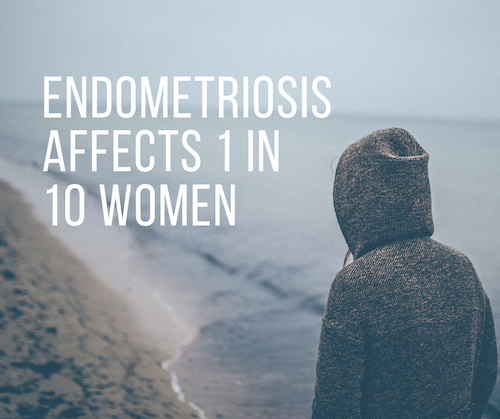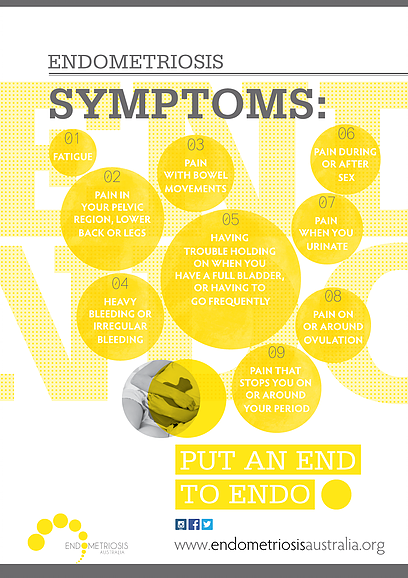Endometriosis affects everyone
(not just those who have it)

In 2018 the Australian government took a tremendous step forward for the health and wellbeing of many women. A disease that affects 1 in 10 women, endometriosis finally achieved broad-scale recognition of its significantly detrimental effect on women's health, and the need for funding into more research in this are.
What is endometriosis?
Endometriosis is a condition where tissue similar to that found inside the uterus is found in other locations around the body. Symptoms can vary but generally include

- significant pelvic pain, at any time;
- pain during sex;
- back pain;
- pain passing a bowel motion; and
- low energy.
It also can be closely associated with infertility. While many of these symptoms are quite vague, a diagnosis often occurs after excluding other causes and, often but not always, by undergoing a laparoscopy (keyhole examination under anaesthetic).
The cause of endometriosis is currently unknown, although there does appear to be a link to the immune system. One hypothesis is that the body’s own immune response makes the symptoms worse.
It can affect teenagers and adults alike, and is often only diagnosed 7-10 years after symptoms begin.
How does endometriosis affect me?
You might be experiencing some or all of these symptoms, in which case you should see your GP or other healthcare practitioner for a diagnosis.
You might have a colleague, partner or friend who is often "off sick", in significant pain, depressed or even just moody as their daily life is often marred by these symptoms. It is important to understand that this disease often negatively affects the mental and emotional state of the woman suffering it, as well as impacting her financial stability and relationships.
Understanding what the disease is can help you be more supportive and empathetic to the needs of people with endometriosis. It is not their fault and while there are some treatments available, there is no cure.
How can a Naturopath help?
Some of the key issues with endometriosis are pain and inflammation. At the core of any naturopathic treatment are changes to diet and lifestyle, as well as nutrition and herbal interventions. A naturopath will also look at your whole history and broader health picture to identify and address any other issues that might be compounding how you feel.
Dietary changes might include avoiding some foods, such as some types of dairy and/or gluten, while including some anti-inflammatory foods every day, such as oily fish, turmeric, green leafy vegetables and fresh berries. Lifestyle changes might include creating some time for you - having a regular massage, skin brushing or engaging in an activity that brings you joy, and/or regular gentle exercise.
A naturopath will take into consideration your specific circumstances, your experience of endometriosis, family history and anything else that might be relevant, and combine this with the latest evidence to form a personalised plan to help reduce symptoms and improve your quality of life.
If you would like support with anything mentioned in this article, please feel free to book a complimentary 15 minute phone consultation. We can discuss your specific needs and see if naturopathic support is something that might benefit you.